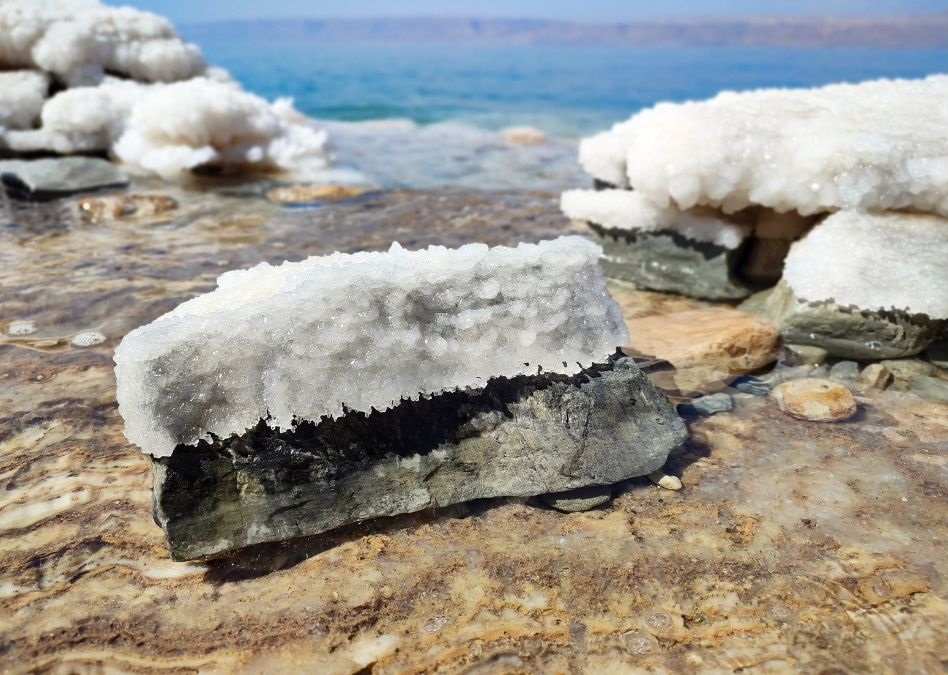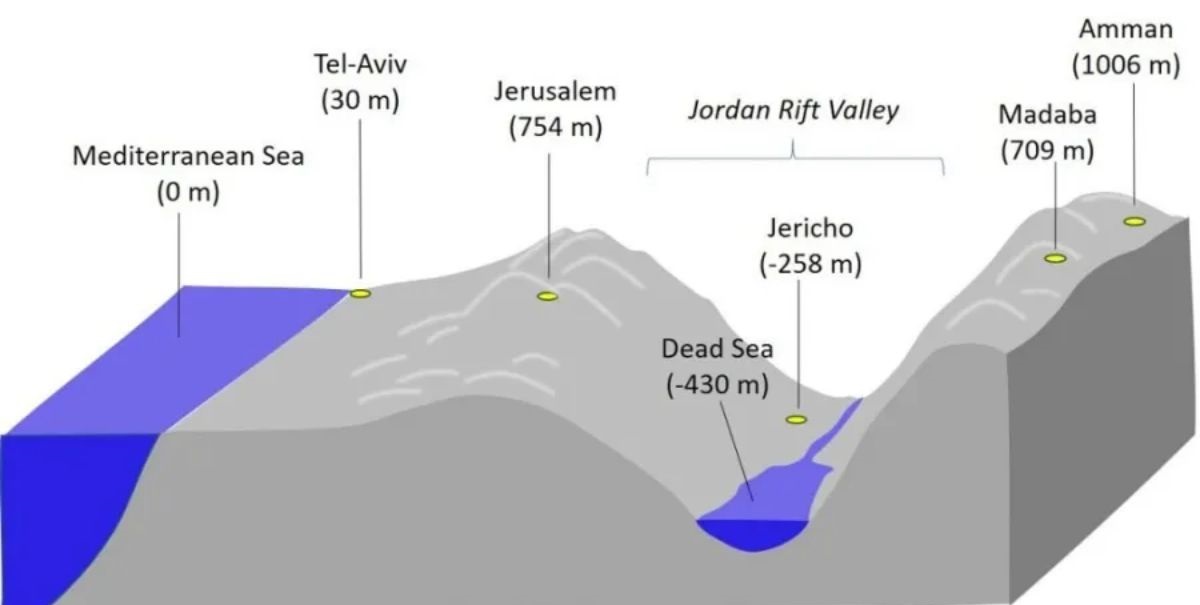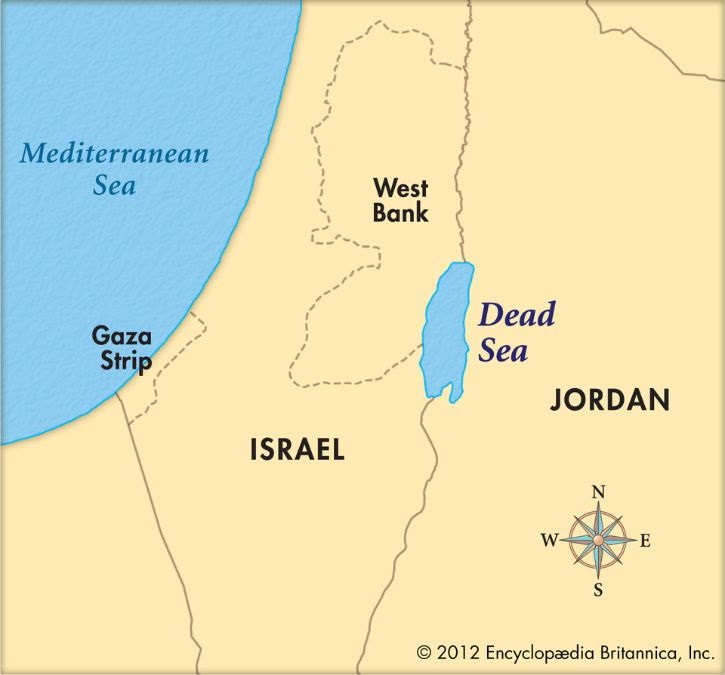Nestled between Jordan to the east and Israel and Palestine to the west, the Dead Sea is a geological marvel renowned for its extreme salinity and the ability of anyone to float upon its waters effortlessly.
Why Are There Stones On Railway Tracks?
Unlike typical lakes or seas, the Dead Sea harbours very little life. The extreme salinity makes it challenging for plants and marine life to thrive in its waters, hence earning it the ominous name ‘Dead Sea’ due to its inhospitable environment for most aquatic life forms.
What is the Dead Sea?![dead sea map]()
Credit: Encylopedia Britannica
The Dead Sea is one of Earth's saltiest bodies of water, with a salt concentration of approximately 34.2%. Interestingly, despite its name, the Dead Sea is a salt lake, not a sea, bordered by rugged desert landscapes that add to its mystique.
This high salinity makes it nearly ten times saltier than typical ocean water. The salinity of other water bodies around the world averages around 3.5% to 5%. Apart from salt, the Dead Sea's waters are enriched with minerals like magnesium, potassium, and calcium, which are renowned for their therapeutic properties.
Why Do We Float In The Dead Sea?
 Credit: Wikimedia Commons
Credit: Wikimedia Commons
The key to understanding why everyone floats in the Dead Sea lies in the principles of density and buoyancy.
Density refers to how tightly packed the molecules in a substance are. In the case of the Dead Sea, the high concentration of dissolved salts and minerals increases the water's density significantly compared to regular seawater.
Buoyancy, on the other hand, is the upward force exerted by a fluid (in this case, water) that opposes the weight of an object immersed in it. Objects float or sink based on their density relative to the fluid. In the Dead Sea, the water's density is so high that it creates a strong upward buoyant force on any object or person in the water, making them float effortlessly.
Therefore, when you enter the Dead Sea, your body displaces a volume of water equal to your weight. Because the water is so dense, it exerts a greater upward buoyant force on you than your body's weight, causing you to float effortlessly on the surface.
What is Space Junk (Debris) and why is it a global threat?
What Makes the Dead Sea So Salty?

Credit: Wikimedia Commons
The primary reason for the Dead Sea's extraordinary saltiness lies in its unique geological setting and climate. Over millennia, rainwater has washed over the surrounding mountains, carrying minerals such as magnesium, potassium, and sodium down to the Dead Sea.
As this water evaporates under the intense heat of the desert sun, these minerals become concentrated, leading to the formation of salt deposits within the lake.
Why Does the Water of the Dead Sea Not Overflow?

Despite receiving water from various sources, including the Jordan River, the Dead Sea does not overflow due to its exceptionally low elevation. Situated at approximately 420 meters below sea level, the Dead Sea is Earth's lowest point on land. This unique geographical position contributes to its intense evaporation rates and high mineral content.

Positioned within the Jordan Rift Valley, a tectonic depression stretching from Syria to Mozambique, the Dead Sea's basin is surrounded by highlands that prevent water from flowing out. Instead, the lake's water evaporates, leaving behind minerals and salts, further increasing its salinity.
Conservation and Future Challenges
While the Dead Sea continues to attract tourists and scientists alike, it faces significant challenges, primarily due to human activities and environmental changes. The diversion of water from its main tributaries, the Jordan River and other freshwater sources, has led to a decline in water levels and increased salinity, threatening its ecological balance.
Conclusion
The Dead Sea's ability to defy gravity and make everyone float is a testament to the intricate interplay of geography, earth science, and the unique properties of its mineral-rich waters. Exploring the science behind why we float effortlessly in the Dead Sea is a captivating demonstration of fundamental scientific principles: density and buoyancy. These concepts play a crucial role in understanding why objects, including human bodies, either float or sink in any fluid, including water.

Comments
All Comments (0)
Join the conversation